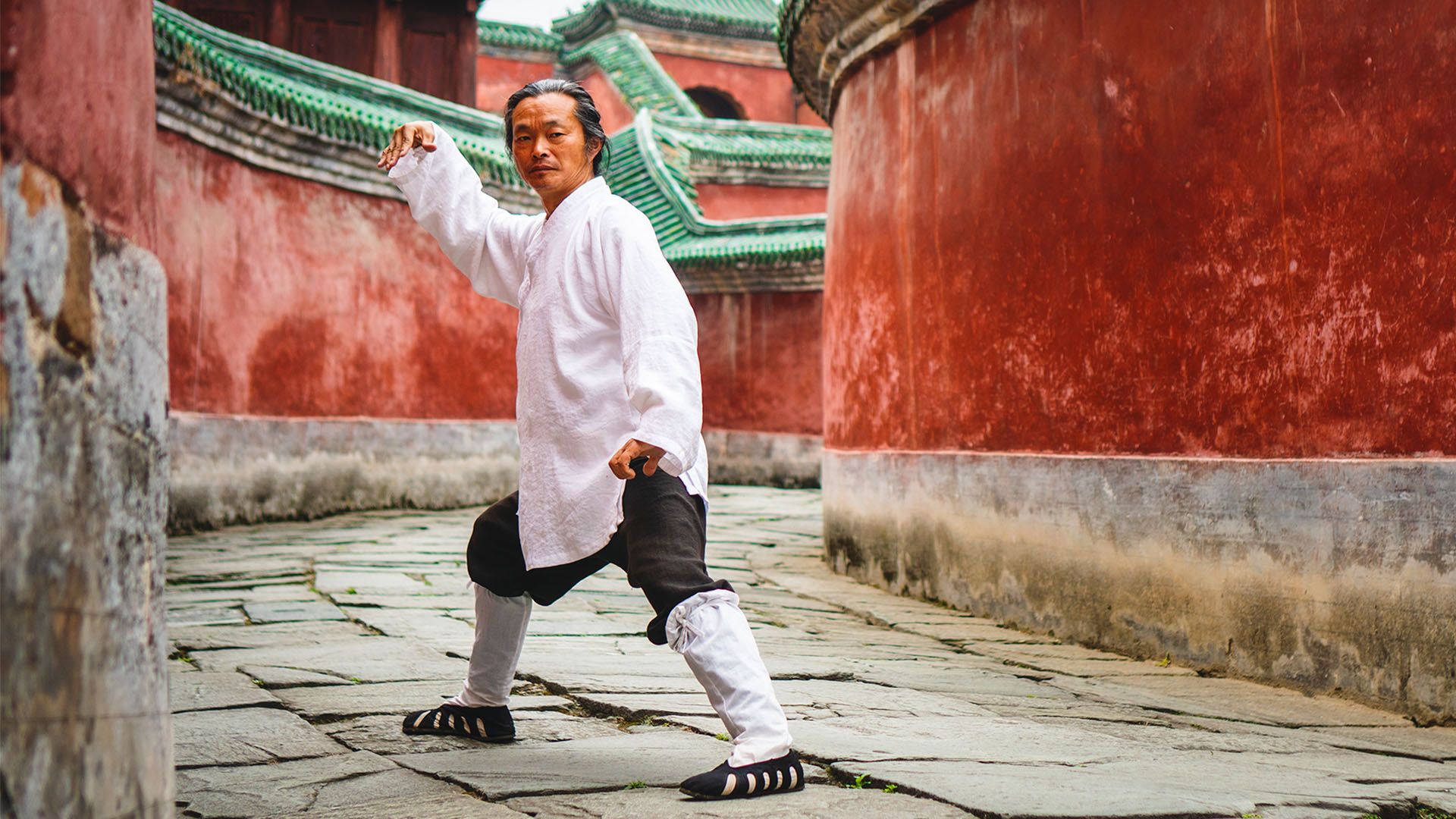Tai chi vs Yoga: 5 Differences You Must Know!
Feb 05, 2024
Tai chi vs Yoga, choosing the right form of exercise can be as puzzling as solving a complex puzzle. With the plethora of options available, it's easy to feel lost. Research indicates that mind-body practices like Tai Chi, Yoga, and even Pilates offer profound health benefits, including alleviating back pain and improving mental well-being. But how do you decide which is best for you? Tai Chi, with its roots in martial arts, and Yoga, with its diverse array of poses and spiritual undertones, both promise a harmonious blend of mind and body rejuvenation.
This guide delves into the five critical differences between Tai Chi and Yoga, helping you navigate through the nuances of each practice, whether you're on a mat in a Yoga class or learning to teach Tai Chi.
Start your wellness routine with Master Gu's Tai Chi course at Wudang Taoist Wellness Academy. Choose Tai Chi for a balanced approach to fitness and mindfulness. Join us today!
Table of Contents
Overview of Yoga and Tai Chi
Yoga and Tai Chi are both mind-body practices that focus on fostering physical and mental well-being through a series of movements, breathing techniques, and meditation. While Yoga originates from ancient India, known for its diverse styles like Hatha and Ashtanga, Tai Chi is a martial art form that emerged from China, often recognized for its slow, flowing movements and deep roots in Qigong.
Origins of Tai Chi
Tai Chi, a martial art with profound philosophical underpinnings, emerged in ancient China. Initially developed for self-defense, Tai Chi evolved into a graceful form of exercise, integrating mind, body, and spirit. Its movements, designed to foster Qi (vital energy), promote serenity through gentle, flowing motions.
The practice emphasizes posture, ensuring that each stance aligns with the principles of balance and flexibility. As a mind-body practice, Tai Chi encourages mindfulness, harmonizing the internal with the external and transforming the martial art into a meditative journey conducive to holistic well-being.
Here is the best online Tai Chi course by the best Master Gu, a distinguished figure in the world of Tai Chi.
Origins of Yoga
Yoga, originating from the mystic lands of ancient India, is more than just a physical exercise; it's a spiritual discipline aimed at uniting the body, mind, and spirit. Rooted in the sacred scriptures known as the Vedas, Yoga's rich history spans thousands of years. Over time, various forms like Hatha Yoga and Ashtanga have emerged, each focusing on unique aspects of the practice, from posture (asanas) to breath control (pranayama).
Central to Yoga is the notion of achieving balance and inner peace, making it a revered mind-body practice that transcends the boundaries of mere physical activity.
Difference Between Tai Chi and Yoga
Tai Chi and Yoga are two prominent forms of exercise that emphasize the harmony of body and mind, but they have distinct characteristics that set them apart. Understanding these differences can help you determine which practice best aligns with your personal goals and preferences.
1. Origin and Philosophical Background:
- Tai Chi originated in China as a form of martial art. It's designed to improve balance and physical health while embodying the principles of Yin and Yang.
- Yoga, rooted in ancient India, is a spiritual practice that involves holding several styles of poses. It aims to unite the body, mind, and spirit, promoting holistic well-being.
2. Movement and Flow:
- Tai Chi is a series of slow, deliberate movements, emphasizing flow from one position to another to enhance core strength and reduce the risk of falls, particularly beneficial for older adults.
- In contrast, Yoga often involves holding positions for longer periods, focusing on stretching and strengthening muscles. The practice of Yoga depends on the style, ranging from gentle to more physically demanding forms.
3. Health Benefits:
- Both practices offer many similar benefits, such as improving strength and balance, reducing stress and anxiety, and aiding in the management of chronic conditions. However, the approach to achieving these benefits varies.
- Tai Chi's gentle movements are easier on the body, making it an ideal choice for those interested in a softer, flowing form of exercise that improves balance and reduces the risk of falls.
- Yoga can help develop greater flexibility and core strength. It's a versatile practice where the intensity and focus on physical health or spiritual growth can be tailored to the individual.
4. Mindfulness and Meditation:
- Tai Chi and Yoga both incorporate meditation and breathing techniques to foster a state of mindfulness and relaxation. Tai Chi's movements are often considered a form of meditation in motion.
- Yoga also places a significant emphasis on breathing and meditation, with practices like Pranayama (breath control) being central to many Yoga practices. Yoga practitioners often attend classes that end with a meditation or relaxation session.
5. Accessibility and Adaptation:
- Tai Chi is known for its adaptability. Many Tai Chi moves can be modified to suit individuals of different fitness levels and physical capabilities, making it a popular choice among older adults.
- Yoga also offers this adaptability, with numerous forms ranging from gentle, restorative practices to physically demanding styles. Yoga practices can also be modified with props and adjustments to suit practitioners' varying needs.
Tai Chi vs Yoga: Physical and Mental Health Benefits
Benefits of Tai Chi
- Enhances balance and coordination, reducing the risk of falls, especially beneficial for older adults.
- It Fosters mind-body integration, promoting mental calmness and clarity through its meditative movements.
- Improves physical health by gently strengthening muscles and the core without having a harsh impact on the body.
- Reduces stress and anxiety, with studies endorsing its effectiveness in promoting mental well-being.
- Promotes deep, abdominal breathing and mindful movement, enhancing lung capacity and relaxation.
Benefits of Yoga
- Strengthens muscles and enhances flexibility through various poses that stretch and tone the body.
- Improves mental well-being by incorporating meditation and breathing techniques to alleviate stress.
- Offers customizable practices to suit individual needs, ranging from gentle stretching to vigorous workouts.
- Promotes heart health by lowering blood pressure, reducing cholesterol, and improving circulation.
- Enhances mindfulness and bodily awareness, extending the benefits of heightened awareness beyond the practice itself.
Complementary Practices and Their Unique Contributions
Tai Chi and Yoga, often seen as serene and meditative forms of exercise, actually encompass much more. Originating in China, Tai Chi is a series of movements flowing seamlessly into one another, embodying the principles of yin and yang. It's designed to help people improve their balance, which significantly reduces the risk of falls, especially pertinent for older adults. As a form of martial art, Tai Chi moves involve both meditation and breathing techniques, emphasizing mind-body connection.
On the other hand, Yoga, with its roots in ancient Indian philosophy, involves holding a series of poses that stretch and strengthen the body. It's not just about moving your body; yoga practices integrate breathing and meditation, aiming to foster harmony between body and mind. With several styles of Tai Chi and different styles of yoga available, each offers a unique approach to enhancing physical health and mental well-being.
When to Choose Tai Chi or Yoga
When deciding between Tai Chi or Yoga, personal preference plays a pivotal role. If you're interested in Tai Chi, flowing movements and gentle strength and balance improvements may attract you. Many older folks and those seeking a peaceful, low-impact workout prefer Tai Chi because it is easy on the body. Tai Chi classes focus on learning to flow from one position to another, gradually building physical coordination and mental focus.
Yoga, however, might be your go-to if you're seeking a practice that involves more stretching and strengthening. With its various forms, yoga can help improve your balance and core strength, catering to those who wish to engage in more dynamic movements. Yoga often involves holding poses for longer periods of time, which can enhance flexibility and muscle tone. Yoga incorporates philosophical themes that may resonate with your spiritual journey.
Conclusion
Tai Chi vs Yoga, both emerge as beacons of health and tranquility. While Tai Chi offers a dance of flowing movements, integrating the principles of Qigong, Yoga presents a tapestry of poses, each with a unique imprint on physical and mental health. Whether you choose the mat of Yoga or the gentle discipline of Tai Chi, the path leads to enhanced well-being. As you ponder the lessons of each personal trainer and the serenity of every class, ask yourself: Which practice resonates deeper with your journey towards health and inner peace?
FAQs
1. How do the stretching styles in Tai Chi and Yoga differ?
Yoga involves deep, targeted stretches held for several breaths, promoting flexibility. In contrast, Tai Chi focuses on continuous, flowing movements, enhancing overall mobility without holding stretches.
2. Which is better for building muscle strength, Tai Chi or Yoga?
Yoga, especially styles like Ashtanga and Hatha, is known for building muscle strength throughout the body, including the core, arms, and legs. Tai Chi, while improving lower body strength, is generally gentler and may not build muscle strength as intensively.
3. Is Tai Chi more accessible than Yoga?
Tai Chi's gentle movements make it accessible and beneficial for all ages, particularly older adults. It's effective in reducing pain from various conditions, improving balance, and reducing fall risks. Yoga, while also beneficial, may require more physical ability and the use of props like mats and straps.
4. Which is more challenging, Tai Chi or Yoga?
Both can be easy at the beginner level, but as you advance, Tai Chi, originating from martial arts, may become more challenging and demanding compared to yoga, which is more static and involves holding poses.
5. Can practicing Tai Chi or Yoga lead to weight loss?
Practicing Tai Chi regularly can lead to weight loss without significant lifestyle changes. Yoga can also help reduce body mass index, especially vigorous forms like power yoga or vinyasa, but might require dietary changes for significant weight loss.







